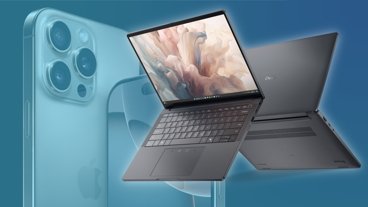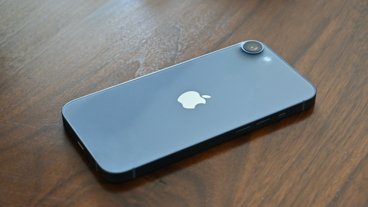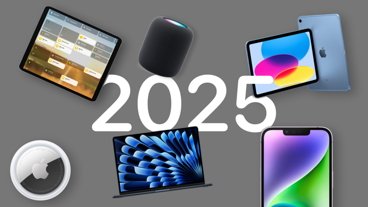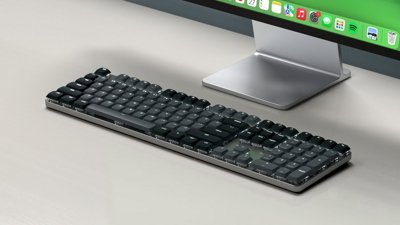Apple on Thursday filed a fresh lawsuit against Qualcomm in the U.K., further escalating the legal row between the two tech firms over patent royalties and chip deals.
The new case mentions a claim on patents and registered designs, but court documents don't offer any further details, Bloomberg reported. This includes which patents are involved, or even Apple's argument.
In the U.S., however, Apple is suing Qualcomm for withholding $1 billion in payments, allegedly because of "retaliation for responding truthfully to law enforcement agencies." The latter company was hit with an $853 million fine in South Korea for restrictive licensing practices, and forcing clients to buy chips at the same time as signing patent deals.
The second point is the focus of a U.S. Federal Trade Commission investigation, launched days prior to the Apple lawsuit. Qualcomm is said to have made lower patent royalties contingent on an exclusive chip deal between 2011 and 2016 — indeed, the iPhone 7 is the first iPhone in years to use a modem from another source, namely Intel. Qualcomm, however, is still in the Apple supply chain.
In addition to wireless chips, Qualcomm is best known for producing the Snapdragon processors used in many Android phones. While chips are where most of the company's revenues come from, over half of its actual profits stem from patent licenses, since it controls some key technologies.
Apple CEO Tim Cook has referred to the U.S. lawsuit as a "last resort," and accused Qualcomm of "charging royalties for technologies that they have nothing to do with." The case also charges Qualcomm with exploiting a monopolistic position to impose high rates on standards-essential patents.
The CEO of Qualcomm, Steve Mollenkopf, has insisted that Apple wants to "pay less for the fair value that Qualcomm has established in the marketplace," despite reaping billions of dollars every quarter.
 Roger Fingas
Roger Fingas








 Wesley Hilliard
Wesley Hilliard

 Marko Zivkovic
Marko Zivkovic
 Christine McKee
Christine McKee

 Malcolm Owen
Malcolm Owen
 Amber Neely
Amber Neely









14 Comments
They used to build phones, many years before Apple. They got out of the business because it was easier to sell chips and IP. Less overhead.
QCOM should cave, but they aren't and the modem slot will belong entirely to Intel in short order. QCOM will have no advantages in the move to 5G networks and their model at that point will no longer guarantee excessive profits.
If QCOM were to cave, they might have retained Apple's business although I find it highly doubtful with what Intel is planning to bring to the market. Still it would be worth a try. Instead, QCOM stands to lose big time. It isn't only Apple they stand to lose as a customer. Samsung's business will also be lost.
FRAND pricing is the same for anyone who wants to licence the tech. If it wasn't, it would be RAND.
You can't ramp it up because the customer is successful.